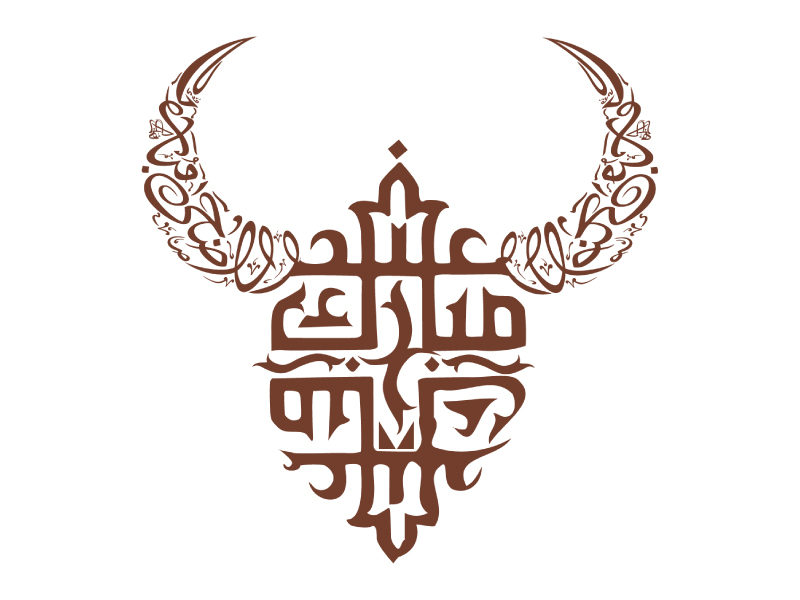
“Gham na dari, buz dari,” says Safdar, citing a Persian axiom to explain the life of a goat herder. It translates to “if you don’t have grief, get some goats.” Feeding and taking care of the animal is no easy feat.
Goats are very sensitive and keep falling sick for one reason or the other, he describes. “You feed them too much or too little and they fall sick. They even fall sick when the weather changes – in cold or hot, in the rain or in sizzling heat.” Goats really add to one’s worries, he said with a sheepish (pun-intended) smile.
First, the shepherd goes through the pains of taking care of goats and then he worries about selling the animal at a good price for Eidul Azha.
Safdar, a resident of Nusrat Colony in Sukkur, has been in the goat business for the last 10 years. He takes care of sacrificial goats and sells them on the eve of Eidul Azha. “I buy eight to ten goats soon after Eid and then take care of them – just like my children,” he says.
Safdar explains how it is unfair when people look down upon herders, accusing them of demanding exorbitant prices for sacrificial animals.
Fends Safdar for asking for good prices, “But we spend so much time and money preparing the goats for sacrifice. We put a price only on the basis of how much we have spent.”
He also works as a labourer. He spins and sells ropes which get him Rs250 almost every day. With his meagre earnings, he has to feed a family of eight and also the animals he tends to.

Baboo, who brings a herd of sacrificial animals in the cattle market in Sukkur every year, says “I don’t understand why people tighten their wallets when it comes to sacrificing in the name of Allah, asks Baboo in a confusing tone. He lives in village Khari near Rohri, brings them to Sukkur just a week before Eidul Azha. He has inherited this family business from his father.
He points to a well-fed, giant red bull. “I had bought this bull two years ago for Rs35,000 and I have spent two years on turning it into a supreme-class sacrificial animal. I am not demanding too much if I ask for Rs250,000!”
“A buyer offered me a mere Rs100,000 for this. How can I sell it for as little when I have spent on its upkeep more than Rs180,000?”
Big businessmen are the ones who buy animals from different parts of the country, especially the southern Punjab and Thar. They make all the profit, Baboo exclaimed. These businessmen buy animals in truckloads at throwaway prices and sell them in big cities for very high prices. “They are the ones who really make a fortune. We bag only a little for a whole year of hard work.”
Baboo said he was seriously thinking of giving up the business.
“It takes lot of time and effort, and people don’t really pay for what we have to do,” he says, with utter disappointment written in the lines of his withered face.
Published in The Express Tribune, October 16th, 2013.
COMMENTS (4)
Comments are moderated and generally will be posted if they are on-topic and not abusive.
For more information, please see our Comments FAQ

















Very well explained the meanings of the Persian Idiom "Gham nadari, buz behkar", I use to learn Persian language and it sorted out my problem, I was looking for correct meaning of this phrase. Shukriya.
As stated by Nadia, please correct this Persian adage: Gham nadari, buz behkar or غم نداری بز بخر
now i wonder... he spend Rs180,000 while kept the animal for two years. That brings it to Rs 90,000 per year or Rs 7500/ month just on 1 bull. He has a family of eight.. he has other 10 goats to buy and feed. how much he is earning per month? does he pay taxes on them? no body bothers to ask this question.
On the other hand, when they bring their animals to city.. they expect customer would pay Rs 250,000 for it. An average person without the para normal income, can only buy an animal around 50,000 to 75,000 beside he has to pay taxes on everything..including the grass he will fed the animal for 2 to 4 days. and still he wants to complain...that customer dont pay him enough..
Its "Gham na dari, buz BEKHAAR... please find the correct idiom